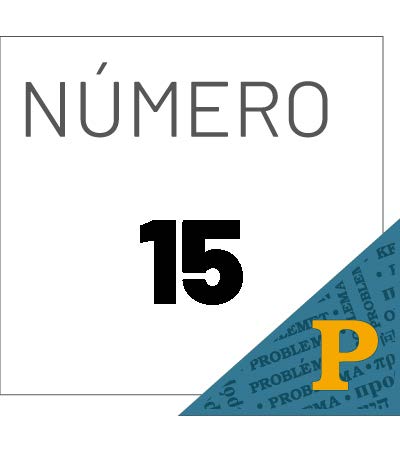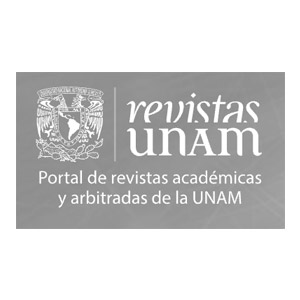Sobre la ética de una moratoria en edición genética humana
Este trabajo analiza las implicaciones sociales de la moratoria propues-ta en la revista Nature por científicos sobre edición genética en la línea germinal. Afir-mamos que la investigación no se debe basar en consensos de opinión pública, sino en evidencia científica. La investigación en ciencia básica en animales podría ser suficiente, para después, investigar en embriones humanos, este es un juicio moral, pero se basa en evidencia y debe ser tomado por personas que entienden la ciencia, no por la opinión pú-blica. El punto de una moratoria es el de avanzar de manera cautelosa, pero no el de limi-tar el progreso, por tanto, las implicaciones sociales que apunta dicha moratoria son limi-tantes y perpetúan estigma sobre la innovación en ciencia.
Detalles del artículo
Uso de licencias Creative Commons (CC)
Todos los textos publicados por Problema. Anuario de Filosofía y Teoría del Derecho sin excepción, se distribuyen amparados con la licencia CC BY-NC 4.0 Internacional, que permite a terceros utilizar lo publicado, siempre que mencionen la autoría del trabajo y la primera publicación en esta revista. No se permite utilizar el material con fines comerciales.
Derechos de autoras o autores
De acuerdo con la legislación vigente de derechos de autor Problema. Anuario de Filosofía y Teoría del Derecho reconoce y respeta el derecho moral de las autoras o autores, así como la titularidad del derecho patrimonial, el cual será transferido —de forma no exclusiva— a Problema para permitir su difusión legal en acceso abierto.
Autoras o autores pueden realizar otros acuerdos contractuales independientes y adicionales para la distribución no exclusiva de la versión del artículo publicado en Problema. Anuario de Filosofía y Teoría del Derecho (por ejemplo, incluirlo en un repositorio institucional o darlo a conocer en otros medios en papel o electrónicos), siempre que se indique clara y explícitamente que el trabajo se publicó por primera vez en Problema.
Para todo lo anterior, deben remitir la carta de transmisión de derechos patrimoniales de la primera publicación, debidamente requisitada y firmada por las autoras o autores. Este formato debe ser remitido en PDF a través de la plataforma OJS.
Derechos de lectoras o lectores
Con base en los principios de acceso abierto las lectoras o lectores de la revista tienen derecho a la libre lectura, impresión y distribución de los contenidos de Problema por cualquier medio, de manera inmediata a la publicación en línea de los contenidos. El único requisito para esto es que siempre se indique clara y explícitamente que el trabajo se publicó por primera vez en Problema. Anuario de Filosofía y Teoría del Derecho y se cite de manera correcta la fuente incluyendo el DOI correspondiente.
Citas
Corte IDH, Atala Riffo y niñas vs. Chile, 2011, disponible en: http://www.corteidh.or.cr/cf/jurisprudencia2/ficha_tecnica.cfm?n Id _ Fi-cha=196&lang=es.
Anzalone, A. V. et al., “Search-and-Replace Genome Editing Without Double-Strand Breaks or Donor DNA”, Nature, núm. 576, vol. 7785, 2019.
Baltimore, D. et al., “A Prudent Path Forward for Genomic Engineering and Germline Gene Modification”, Science, núm. 348, vol. 6230, 2015.
Bennett, R., “The Fallacy of the Principle of Procreative Beneficence”, Bioethics, núm. 23, vol. 5, 2009.
Bogner, A. y TORGERSEN, H, “Precautionary Deliberation: New Technologies and the Regulatory Call for Responsible Innovation”, Genome Editing in Agriculture: Between Precaution and Responsibility, núm. 7, 2019.
Buchanan, A. et al., From Chance to Choice: Genetics and Justice, Nueva York, Cambridge Uni-ver-sity Press, 2000.
Cavaliere, G. y PALACIOS-GONZÁLEZ, C., “Lesbian Motherhood and Mitochondrial Replacement Techniques: Reproductive Freedom and Genetic Kinship”, Journal of Medical Ethics, núm. 44, vol. 12, 2018.
Chan, S. et al., “Edición genética: Punto de no retorno”, Nexos, núm. 498, 2019, disponible en: https://www.nexos.com.mx/?p=4 2688.
Chan, S. y MEDINA-ARELLANO, M. J., “Genome Editing and International Regulatory Challenges: Lessons from Mexico”, Ethics, Medicine and Public Health, núm. 2, vol. 3, 2016.
Chan, S. et al., “Mitochondrial Replacement Techniques, Scientific Tourism, and the Global Poli-tics of Science”, Hastings Center Report, núm. 47, vol. 5, 2017.
Consejo de las Organizaciones Internacionales de Ciencias Médicas, “International Ethical Gui-delines for Health-related Research Involving Humans,” 4a ed., Genova, 2016, dis-ponible en: https://cioms.ch/shop/product/international-ethical-guidelines-for-health-related-research-involving-humans/.
Cyranoski, D., “Russian Biologist Plans more CRISPR-edited babies”, Nature, núm. 570, vol. 7760, 2019.
Cyranoski, D. y REARDON, S., “Chinese Scientists Genetically Modify Human Embryos”, Nature News, 2015, disponible en: https://www.nature.com/news/chinese-scientists-genetically-modify-human-embryos-1.17378.
“Helsinki Declaration of WMA - Ethical Principles for Medical Research in Humans,” World Medical Association, Francia, Ferney-Voltaire, 2013, disponible en: Http://www.wma.net/en/30publications/10policies/b3/index.html.pdf?print-media-type&footer-right=[page]/[toPage.
Holzer, F. y MASTROLEO, I., “Innovative Care in Latin America: Definition, Justification and Ethi-cal Principles,” Controversies in Latin American Bioethics, Spinger, 2019.
DE MIGUEL BERIAIN, I., “¿Modificar o no modificar el genoma de nuestra descendencia? Algunos comentarios a raíz de la Declaración del Comité de Bioética de España sobre la edición genómica en humanos”, Revista Bioética y Derecho. Perspectivas Bioéticas, núm. 47, 2019.
Declaración Universal sobre el Genoma Humano y los Derechos Humanos, Organización de las Naciones Unidas para la Investigación, la Ciencia y la Cultura, 1997, disponible en: http://portal.unesco.org/es/ev.php-URL_ID=13177&URL_DO=DO_TOPIC&URL_SECTION=201.html.
Kleiderman, E. et al., “The ‘Serious’ Factor in Germline Modification”, Journal of Medical Eth-ics, núm. 45, vol. 8, 2019.
Klemesrud, J., “Integration am the Family Level: Whites Adopt Negro Children”, New York Times, 1967.
Koplin, J.J., Gyngell, C., & Savulescu, J., “Germline Gene Editing and the Precautionary Princi-ple”, Bioethics, núm. 34, vol. 1, 2019.
Lander, E. S. et al., “Adopt a Moratorium on Heritable Genome Editing”, Nature Publishing Group, 2019.
Lanphier, E. et al., “Don’t Edit the Human Germ Line”, Nature News, núm. 519, vol. 7544, 2015.
Luna F., “Edición genética y responsabilidad”, Revista Bioética y Derecho. Perspectivas Bioéti-cas, núm. 47, 2019.
Medina-Arellano, M. J., Regular para Innovar: células troncales en México. Fronteras entre la ciencia, la bioética y el derecho, México, Fontamara, 2018.
Morrison, M. y DE SAILLE, S., “CRISPR in Context: Towards a Socially Responsible Debate on Em-bryo Editing”, Palgrave Communications, núm. 5, vol. 1, 2019.
National Academies of Sciences, Engineering, and Medicine, “International Summit on Human Gene editing: A Global Discussion”, 2016, disponible en: https://www.ncbi.nlm.nih.gov/boo
ks/NBK343651/.
National Academies of Sciences, Engineering, and Medicine, “Second International Summit on Human Genome Editing: Continuing the Global Discussion: Proceedings of a Works-hop—in Brief”, 2019, disponible en: https://www.ncbi.nlm.nih.gov/books/NBK535994/.
Palacios-González, C. y MEDINA-ARELLANO, M. J., “Mitochondrial Replacement Techniques and Mexico’s Rule of Law: on the Legality of the First Maternal Spindle Transfer Case. J Law Biosci”, núm. 4, vol. 1, 2017.
Palacios-González, C. et al., “Multiplex Parenting: IVG and the Generations to Come”, Journal of Medical Ethics, núm. 40, vol. 11, 2014.
Pascual, V., “El científico chino que modificó los genes de dos bebés admite otra fecundación con embriones alterados”, El país, 2019, disponible en: https://elpais.com/elpais/2018/11/28/ciencia/1543381113_429352.html.
Reardon, S., “Genetic Details of Controversial’three-Parent Baby’Revealed”, Nature News, núm. 544, vol. 7648, 2017.
Rosenbaum, L. “The Future of Gene Editing-Toward Scientific and Social Consensus”, N Engl J Med, vol. 380, núm. 10, 2019.
Santillán-Doherty, P. et al., “Considerations on Genetic Engineering: Regarding the Birth of Twins Subjected to Gene Edition”, Gaceta Médica de México, núm. 156, 2020.

























